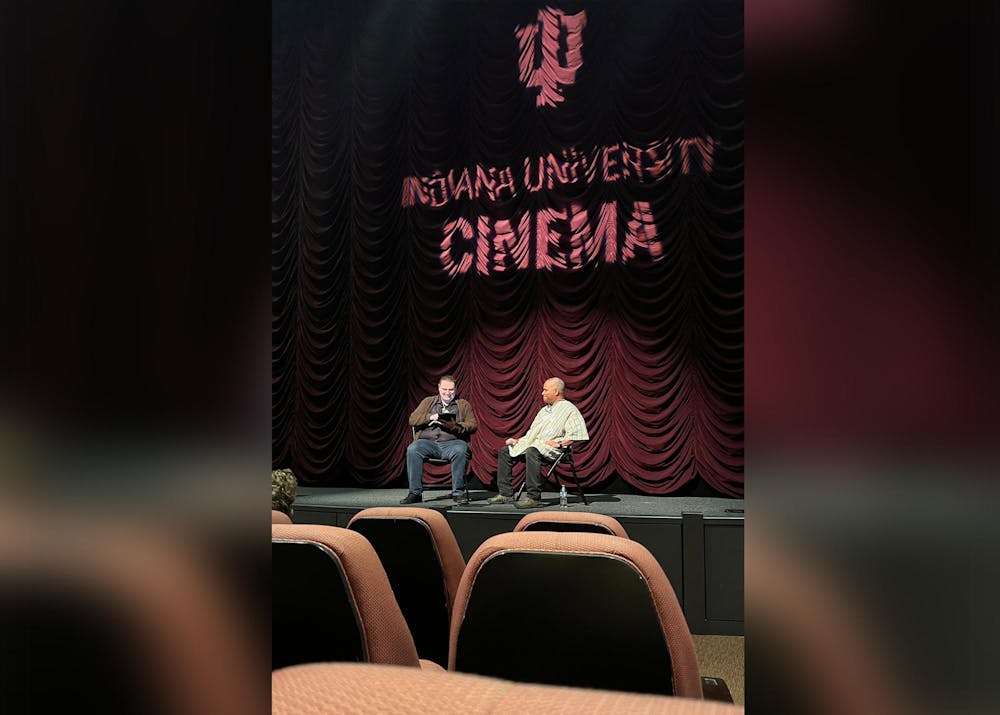As part of the IU Global Film Festival series, IU Cinema screened the documentary, “Descendant” at 7 p.m., Jan. 30 inside IU Cinema. It gave a voice to those descended from the last known ship that brought stolen Africans into the United States. Discovering the shipwreck was simply the first step. “Descendant” is about so much more.
Directed by Margaret Brown, the documentary addresses the long-lasting effects of slavery in both historical and modern settings through the small community of Africatown, AL. The residents of the town are descendants of the Clotilda, the last known slave ship to transport humans from Africa to the U.S. in 1860.
The Clotilda arrived in Alabama more than fifty years after slavery was outlawed in 1865. The Africans that arrived in the US formed a community in Africatown, attracting other native Africans with their dedication and preservation of their cultural background. “Descendant” explores not only the history of the ship and the residents, but also Africatown and the struggles the community has gone through.
Residents of Africatown faced racism in several forms which “Descendant” explores in full. The documentary shines a light on Thomas Meaher, the man who financed the Clotilda’s final voyage and whose family still benefits from the voyage today. Around 1865, Meaher’s family sold or leased a large portion of land — where factories emitting poisonous chemicals operated — to Africatown residents. The pollution was a by-product of red lining and rezoning that were never safely dealt with. In the documentary, local environmental activist Ramsey Sprague, many locals think years of living near pipelines and smokestacks spewing toxins into the air caused their illnesses.
The film was more than a history lesson: becoming an ode to storytelling in film and how important it was to use that medium to elevate those whose voices and stories have been silenced. “Descendants” represented American history with all its untold stories, reminding the audience history in its rawest form must be recognized, honored and learned from.
Kern Jackson's insightful observations about the tenacity of the Africatown community were powerful examples of this.
Isaiah Green, a PhD candidate in the Department of Folklore and Ethnomusicology, and co-writer/co-producer Kern Jackson spoke during a Q&A session after the “Descendant” screening in IU Cinema. The documentary's discussion of Africatown and Clotilda descendants were in-depth, emphasizing the value of conserving African American history.
The audience enthusiastically participated in the Q&A session. One viewer — who saw the documentary four times — praised the documentary’s significance in its recovery of history and commended its potent portrayal of life for Africatown residents. The discussion focused on how the movie honored the community's resiliency and preserved African American history.
Jackson’s specialization in African American folklore study — spanning several decades — is evident throughout the documentary. "Descendant" emphasizes the value of oral traditions to represent a culture frequently overlooked by historians. Jackson said oral traditions could not be erased if there was a living person to recount the story and carry it on just like the stories of the Clotilda.
As he discussed the film, Jackson also praised Brown for her direction and commitment to representing marginalized communities authentically. He said her past work on documentaries about African immigrants as well as her personal connection to Africatown helped with her portrayal of the overlooked community.
“Margaret Brown worked extremely hard in the film, mostly because she was from that place,” Jackson said. “This was her fourth documentary of that African American community, not particularly about the Africatown.”
Brown’s documentary tackled the systematic racism embedded in the Africatown neighborhood while also documenting the historical significance behind finding the Clotilda — the ship had been considered lost and dismissed by history as a legend.
Through her lens, the documentary provides a forum for Africatown's voices, enabling the neighborhood to tell its tales and address the legacy of past injustices.
“I am really proud of the neighborhood, the way they had the energy and not only discovered Clotilda also to leverage it, being actively involved in this process of finding Clotilda," Jackson said.




